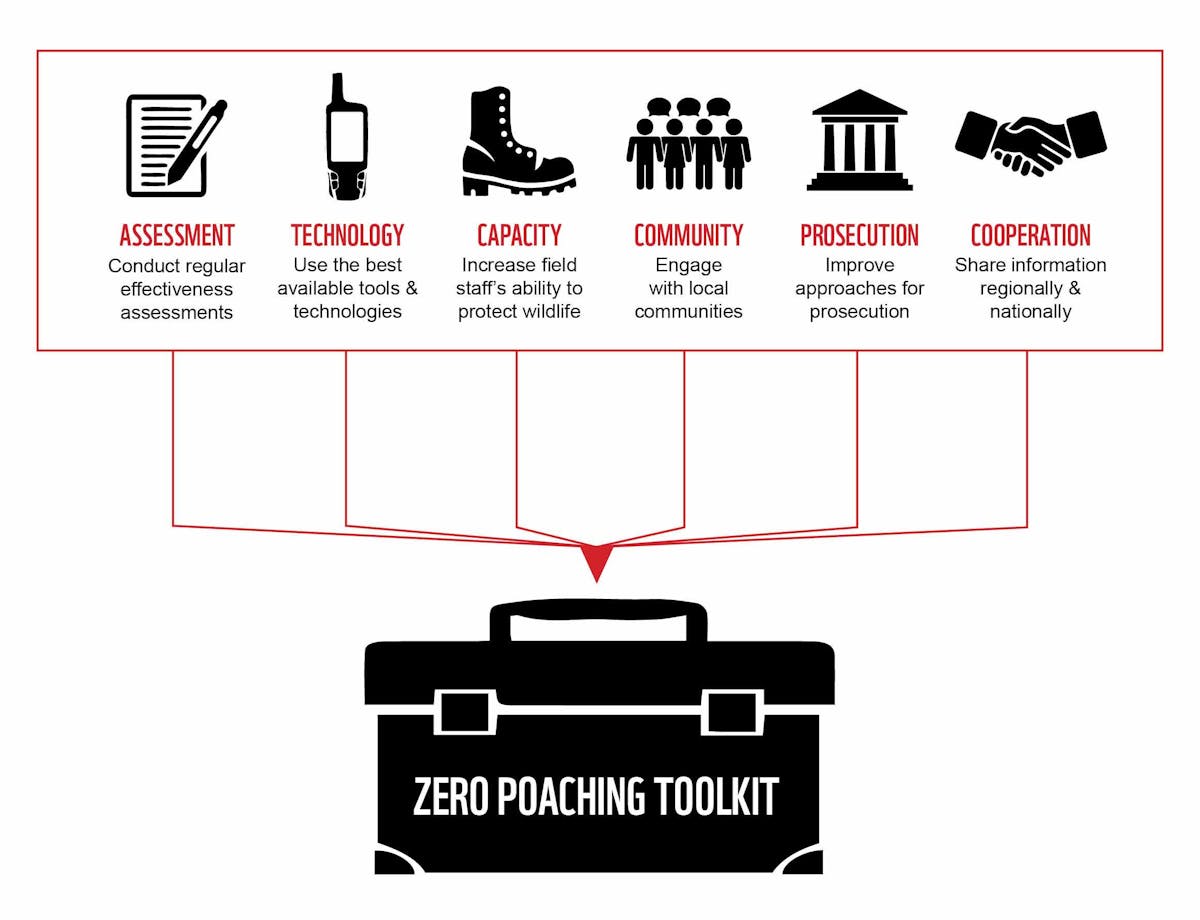Wildlife Crime Prevention
Poaching—the word may conjure images of large-scale organized crime and of black markets. The poaching of elephants, rhinos, tigers, and other charismatic wildlife species is an important issue, but often overlooked are the thousands of lesser-known Endangered species that are also being driven to extinction by poaching. These thousands of species across the planet are being poached for a variety of reasons: for food, the pet trade, traditional and folk medicine or status symbols among other things.
This has a massive impact on global biodiversity. On top of habitat degradation and destruction, wildlife crime has put many more species on the brink of extinction—and many of the lesser-known species are even more likely to go extinct than some of their better-known counterparts that receive the most attention and funding to support anti-poaching measures. When a species goes missing, even those that aren’t well known, the entire region suffers.
Re:wild focuses on preventing wildlife crime, rather than primarily on punishing offenders. This means working closely with communities to develop prevention strategies that take into account the societal and cultural drivers of wildlife crime, and ensuring the required systems and technology are in place where they’re needed to stop poachers before a crime is even committed.
What Re:wild Is Doing
Re:wild engages in wildlife crime prevention in regions around the globe. We help our local partners develop comprehensive approaches that are highly tailored for each site to fit their specific needs and requirements. It includes solutions designed to meet a site’s unique challenges, similar to our work managing protected areas.

We help to find local solutions that work long term, which may or may not include increasing local law enforcement presence. Re:wild is increasing the support for local staff and field personnel, using technology to make existing countermeasures more effective and collaborating with local partners, authorities, communities and Indigenous peoples to ensure we have the best information available. This creates sustainable solutions to growing problems.
We’re applying conservation criminology to understand why criminal activities are happening. There’s not a magic bullet to end wildlife crime, so we must maximize every available resource. A holistic approach that creates region-specific solutions is our best path towards achieving zero poaching and protecting biodiversity.
Assessing challenges
Evaluate current efforts and future threats to create effective solutions.
Mts. Iglit-Baco Natural Park (Philippines) combines modern wildlife crime prevention practices with traditional conservation methods of the local Indigenous peoples.
Build capacity and support rangers
Train and equip current rangers to improve their effectiveness.
We are working to protect the few remaining Javan Rhinos In Ujung Kulon National Park (Indonesia) by supporting the Government of Indonesia, and our local partners YABI, by designing and implementing a patrolling and reaction system that provides rangers data and instructions in real-time.
Apply crime science to conservation
We’re teaming up with the University of Maryland to use modern criminology best practices to remove local support for poachers in Pu Mat National Park in Vietnam. We find the why, and patterns behind wildlife crimes and apply those insights to develop local applicable solutions with communities and the local ranger force.
Encourage adaptive management and monitor impact
As a member of the SMART (Spatial Monitoring and Reporting Tool) Partnership, we’re using technology for evaluating and reporting on law enforcement effectiveness, ecological monitoring and data collection and gaining insights on how to support protected areas through adaptive management.
We’re training and implementing SMART to support wildlife crime prevention in sites where Re:wild is engaged. This includes national level implementation in Zimbabwe, Costa Rica, Vietnam and at the regional level throughout the Caribbean.
Promote collaborations
By supporting local conservation partners, we’re helping crime prevention groups on the ground.
Africa’s second largest elephant population lives in the Zambezi Valley. As poachers threaten to wipe out the elephant population, the Zambezi Elephant Fund, a Re:wild-supported organization, is bringing together the partners and resources to support the rangers protecting the elephants and the Zambezi Valley landscape.
